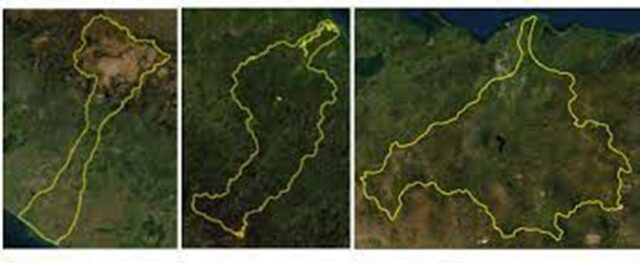The University of Costa Rica (UCR), the National Autonomous University of Honduras (UNAH) and the San Carlos of Guatemala (USAC), joined forces to jointly develop “Morazán”. It is a CubeSat (nanosatellite) with which it seeks to develop an early warning of floods in areas with little technology coverage.
The tests will start in the basins of the Matina rivers in Costa Rica, Ulúa in Honduras and Samalá in Guatemala; in order to prevent in a timely manner the threats of natural disasters aggravated by climate change.
The gestation of the project comes from the Aerospace Engineering Commission of the Federated College of Engineers and Architects of Costa Rica and will include both professionals and students from various careers. For example, the School of Geography of the UCR and the School of Space Sciences of the UNAH will be added.

How does the satellite work?
The operational steps of the Morazán Satellite are divided as follows:
– Pre-event phase: collection and transmission of data such as precipitation and river level, soil moisture.
– During the event: emit the emergency signal and perfect the early warnings.
– Post-event: activates a satellite communication system for the areas that are isolated.
The idea is for the satellite to continually generate downloadable images that can also be used for educational purposes.
At the moment, contacts are being developed with the first benefited localities to include social leaders in the implementation of the project. In addition, it will seek to include indigenous communities. Areas that the Morazán Satellite would be monitoring in Guatemala, Costa Rica and Honduras
UN aid and Japan
“Morazán” has already managed to surprise international institutions that will also help in the development of the satellite. The project won competition from the United Nations Office for Outer Space Affairs (UNOOSA) and the Japan Aerospace Exploration Agency (JAXA), named KiboCUBE.
It also has the support of the Kyushu Institute of Technologies in Japan (Kyutech) and the Mauritius Research and Innovation Council (MRC) of the Mauritius Islands for its operations phase.
“The development of capacities in the space field is a matter of survival in the face of the challenges that we must face due to the effects of climate change. We must continue to promote cooperation between our nations and actively involve youth, to achieve effective inclusion of the Central American region in the global value chain of the space industry, ”said Carlos Enrique Alvarado, promoter of the plan from the CFIA.


